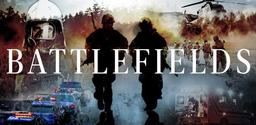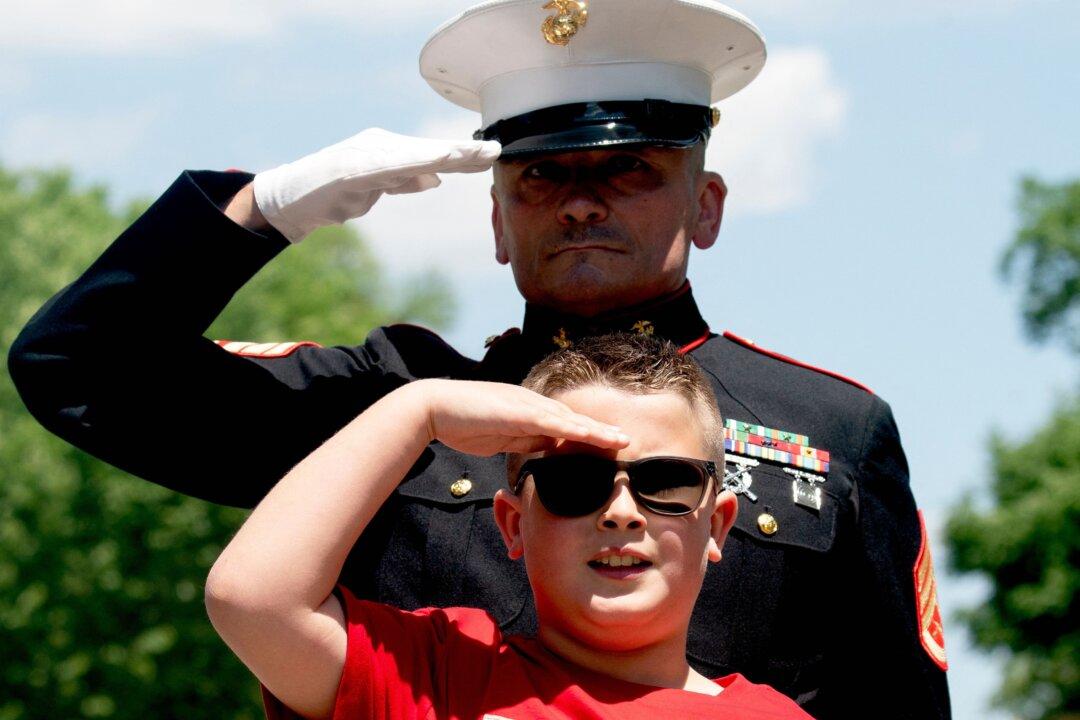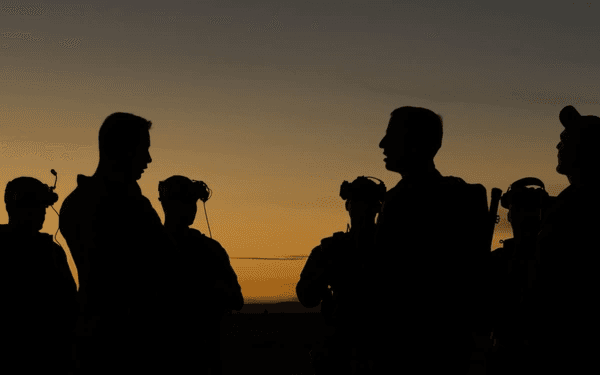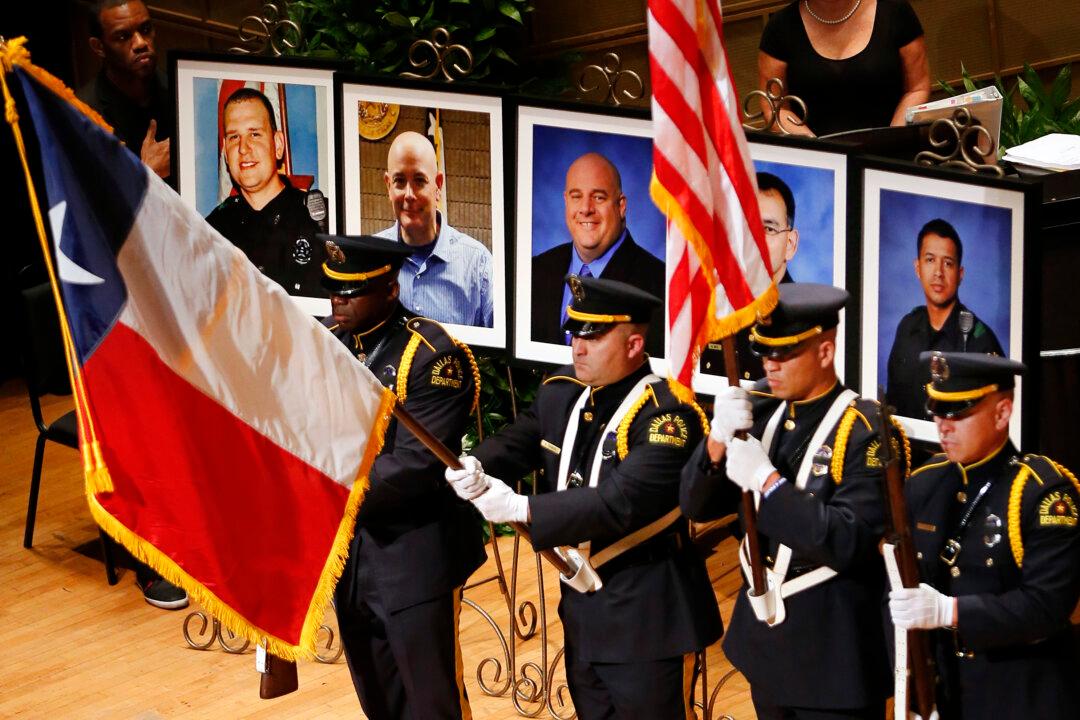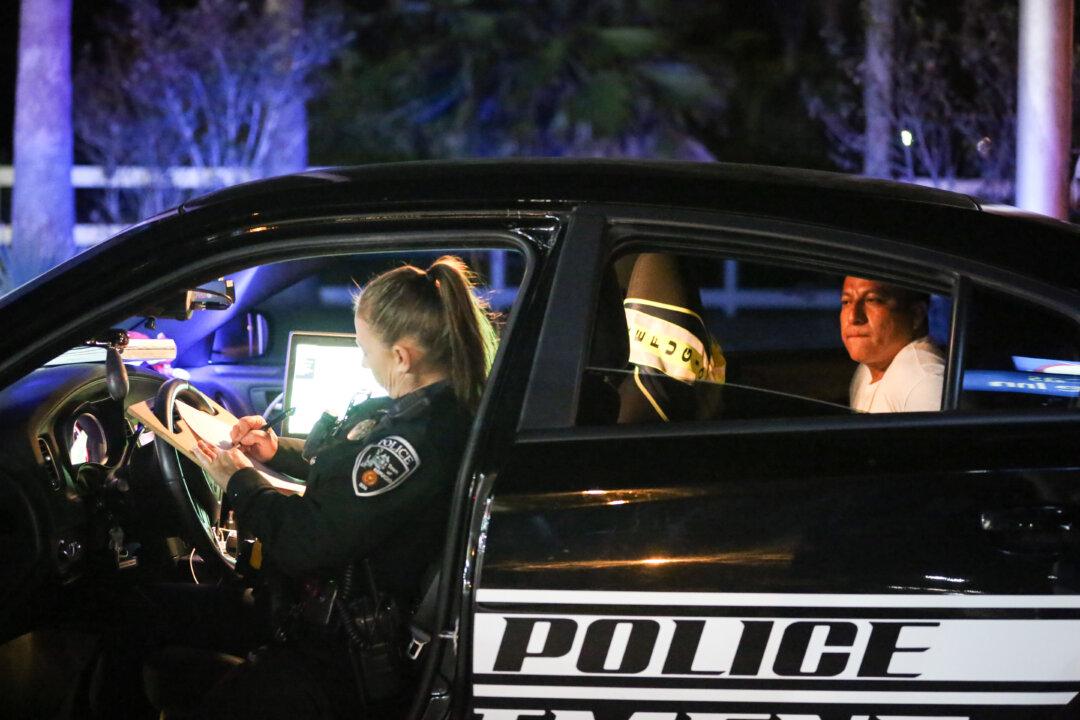My squad drives along MSR (main supply route) Dover, en-route to Camp Anaconda. I stand in the gunner’s position, wearing my face mask and goggles. Dust hit my face as sweat from the desert heat trickled down my face and back. I wore a 50-pound IBA (individual body armor) with extra ammo, my M-16 right next to me in case my trusty .50 cal failed. We approached a one-lane bridge. The Iraqi Army stopped both sides of traffic. My squad stopped to assess the situation. Our battalion commander wanted me to tell the Iraqi soldier standing next to my truck that we needed to keep moving. I spoke with the Iraqi soldier in Arabic. He looked perplexed as if I was somehow speaking a foreign language that he didn’t understand. It was surreal for him. He replied in Arabic, “I don’t speak English.” So, I respond, again in Arabic, saying: “Well how about we speak Arabic then?” He nodded in agreement as a smile spread across his face.
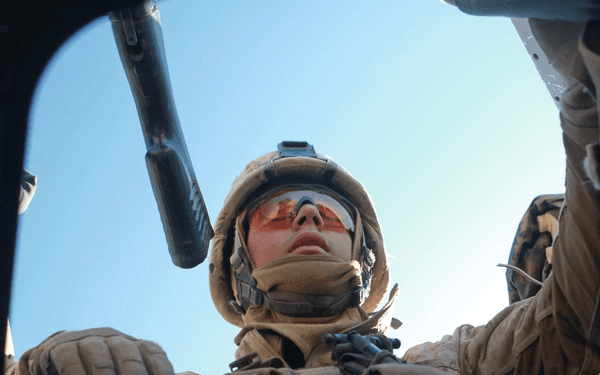
U.S. Marine in Afghanistan.
DoD photo by Cpl. Tommy Bellegarde
Commentary
Ayman Kafel is the founder and owner of Hybrid Wolf Blue Line Strategies, LLC, a veteran-owned training and consulting company for law enforcement officers and agencies. He combines his military and law enforcement experience to bring much-needed cutting-edge training to the law enforcement profession.
Mr. Kafel is not only an active police officer but also an Army combat veteran who was deployed during Operation Iraqi Freedom in 2005. He became a police officer in 2007 after 8 years of service in the Army.
To reach Ayman, feel free to email him at [email protected].
Author’s Selected Articles

